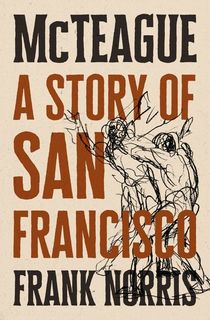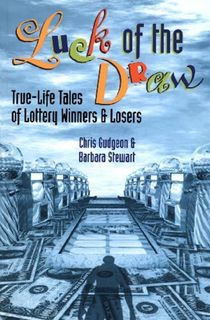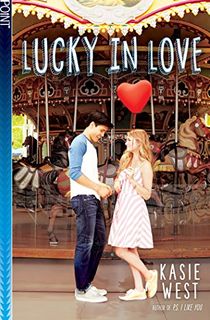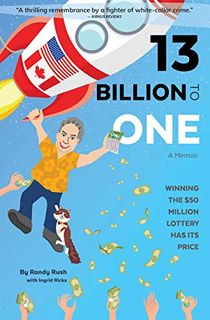“If we find it hard to believe that winning millions might not be so lucky after all, we just don't have a good enough imagination. If I fantasise about winning the lottery, it doesn't take long before all sorts of worrisome potential consequences occur to me.”— Julian Baggini.
Who hasn’t dreamt about winning the lottery? It’s the ultimate fantasy. Long-term financial prosperity. Money to spare for international vacations and designer clothes and dinners out at the very best five-star restaurants. The freedom to pursue any new experience or hobby. The means to prop up the charity of your choice and make a real dent in the world’s problems. Never having to hunt around for bargains or cringe in dread at the sight of a bill in the mail ever again. It is, from many perspectives, the perfect investment. A few dollars spent on a ticket and a takeaway of millions and millions. But only if you’re lucky.
Unfortunately, winning the lottery also comes with its own prices. Unwelcome relatives and “old friends” crawling out of obscurity to beg for handouts. Scammers preying and plotting to take the money away from you. Fights with a spouse over how the money should be spent and invested. Getting carried away with all the perks listed above and watching the bank balance dwindle back down to zero. Wouldn’t that be the ultimate humiliation? Going from winning everything to losing everything, in breathtaking time.
In 1877, Russian author Anton Chekhov famously published a short story titled “The Lottery Ticket” about a middle-class married couple, potential winners of a grand lottery, who quickly seethe with resentment for each other even before they even go collect the money.
Greed can be the greatest trigger for irritation and irrationality. It can also bring out the worst side of people’s personalities. Generosity, on the far other end of the spectrum, brings out the best. This group of authors investigates all of it. The euphoria, the reliefs, the stresses, and the dangers of buying that one lucky ticket and winning the jackpot.
These fictional characters and these real-life people all have enormous piles of money fall into their laps, and the piles aren’t always delegated to where they need to be. Here are four recommended books that really show readers what it’s like to win the lottery. At the end of each one, readers can decide whether or not they want to continue holding on to that dream, or just amassing a fortune the dull, old-fashioned way—through hard work and saving.

McTeague
“Never, never, never should a penny of that miraculous fortune be spent; rather should it be added to. It was a nest egg, a monstrous, roc-like nest egg, not so large, however, but that it could be made larger. Already by the end of that winter Trina had begun to make up the deficit of two hundred dollars that she had been forced to expend on the preparations for her marriage.”
Here’s a historic novel to teach readers that the lottery has always been a gift with hefty costs attached. Published in 1899, it’s a “money corrupts” story on par with the social commentary works of Norris’s predecessors Anton Chekhov, Gustave Flaubert, and Émile Zola. Trina, an ambitious young woman with obsessive tendencies, wins $5000 (which translates to around $181,000 in our time) in a lottery. This fortune, her new dowry, allows her to marry McTeague, a poor dentist with hopeful prospects. But Trina is paranoid about spending even a dollar of her money and spends her married life hoarding it like a dragon, contributing to its store whenever she can by squirreling away small amounts of painstakingly saved cash. The couple’s cruel and swinish friend, Marcus, feels cheated out of Trina’s hand in marriage and her assets, and plots revenge. As Marcus sets out to destroy the happy couple, their tug-of-war over Trina’s money threatens to destroy it even faster.
Norris barely had to dip into his imagination to write this book, having based it on a notorious crime that was circulating the San Fransisco newspapers in his day. San Franciso was still gripped in the aftermath of the gold rush and people were still going mad with a lust for wealth. This novel has so disturbed and captivated audiences that it’s been made into a film twice: McTeague, released in 1916, and the appropriately titled Greed, released in 1924. It’s also been adapted into a tragic opera.

Luck of the Draw: True-Life Tales of Lottery Winners and Losers
“The magic of the lottery, that is, which in an instant can transform a legal secretary or unemployed father or dock worker or waitress or bank manager into a multimillionaire. The lottery is the only reliable miracle left in this age of reason; no matter what else happens this week, you can be sure someone, somewhere will win it big.”
Gudgeon and Stewart have effectively assembled a collection of real-life lottery winners and the fortunes and misfortunes that befall them as a result of their luck. The book introduces readers to an infamous Florida widow who, in 1984, won a massive fortune of five million dollars. Three years later, she’d burned through the lot and owed the government half a million dollars in taxes. She blamed her daughter-in-law for the losses and tried to have her assassinated.
Readers will also be introduced to winners who walked away with cash prizes after appearing on hit reality game shows like Who Wants to Be a Millionaire? The book also operates as an advice text and a psychological assessment into the countless way people constantly try to win easy money. Playing the slots at the casino, betting on sports, “friendly” games of poker with friends, scratch tickets…everyone hopes for and pursues that lucky break, especially in America, the country where anything seems possible. But the authors make it a point to remind readers that smart money management must coincide with every win, big or small, or else.

Lucky in Love
“We make our own luck. I believed that, too. We chose our own fate. We controlled our own future. I knew what I wanted. I needed to go get it.”
Kasie West’s protagonist is not the type of person who clings to a lottery fantasy to get by. Maddie, a practical-minded zoo worker and student, watches every dime she spends. But one day she surrenders to a rare impulse and buys a lottery ticket, which ends up being the winning one. Overnight, her circumstances and her personal philosophies flip on their heads. She embraces her new life of financial security, and starts spending as she likes, but she also has to put up her guard.
Everyone she knows starts harassing her and propositioning her like she’s a certified moneylender, and it’s infuriating. Her love interest, her co-worker Seth, seems to be the only one who doesn’t regard her as an alternative bank, but that’s only because he doesn’t know that she’s rich. As their romance blossoms, Maddie must decide whether or not to take that second daunting risk and tell Seth her big secret. West’s novel directly addresses this question: is our net worth just a number, or is it part of our identity that others perceive?

13 Billion to One: A Memoir: Winning the $50 Million Lottery Has Its Price
“I could feel my throat muscles constricting and heard Filina’s voice urging me to breathe as the call center operator began rattling off a series of verification questions. She asked me my name, where I lived, and when and where I had purchased the ticket. She also had me read the security number off the ticket and then put me on hold so she could run some security checks on her end—including viewing surveillance video—to corroborate the information I’d provided.”
Randy Rush’s memoir is a rags-to-riches story with major complications. Having grown up under the welfare system and having experienced homelessness, Rush never thought that he would be the recipient of such an enormous amount of money. But he took a chance and bought that winning ticket anyway. As almost anyone who has been denied access to disposable income all their life would, Rush goes overboard, shelling out wads of cash on luxury goods he’s never had and charitable causes he’s never been able to contribute to.
With his mind in a spendthrift whirlwind, he renders himself emotionally vulnerable to predators. Two such individuals, his so-called friend Dave and Dave’s son Jeremy, subsequently swindle him out of a substantial chunk of his cash, striking a blow in his overall trust in other people. This real-life account of events stands as a cautionary tale to anyone who finds themselves suddenly rich one day. The money can disappear almost as quickly as it appears. So be careful.



